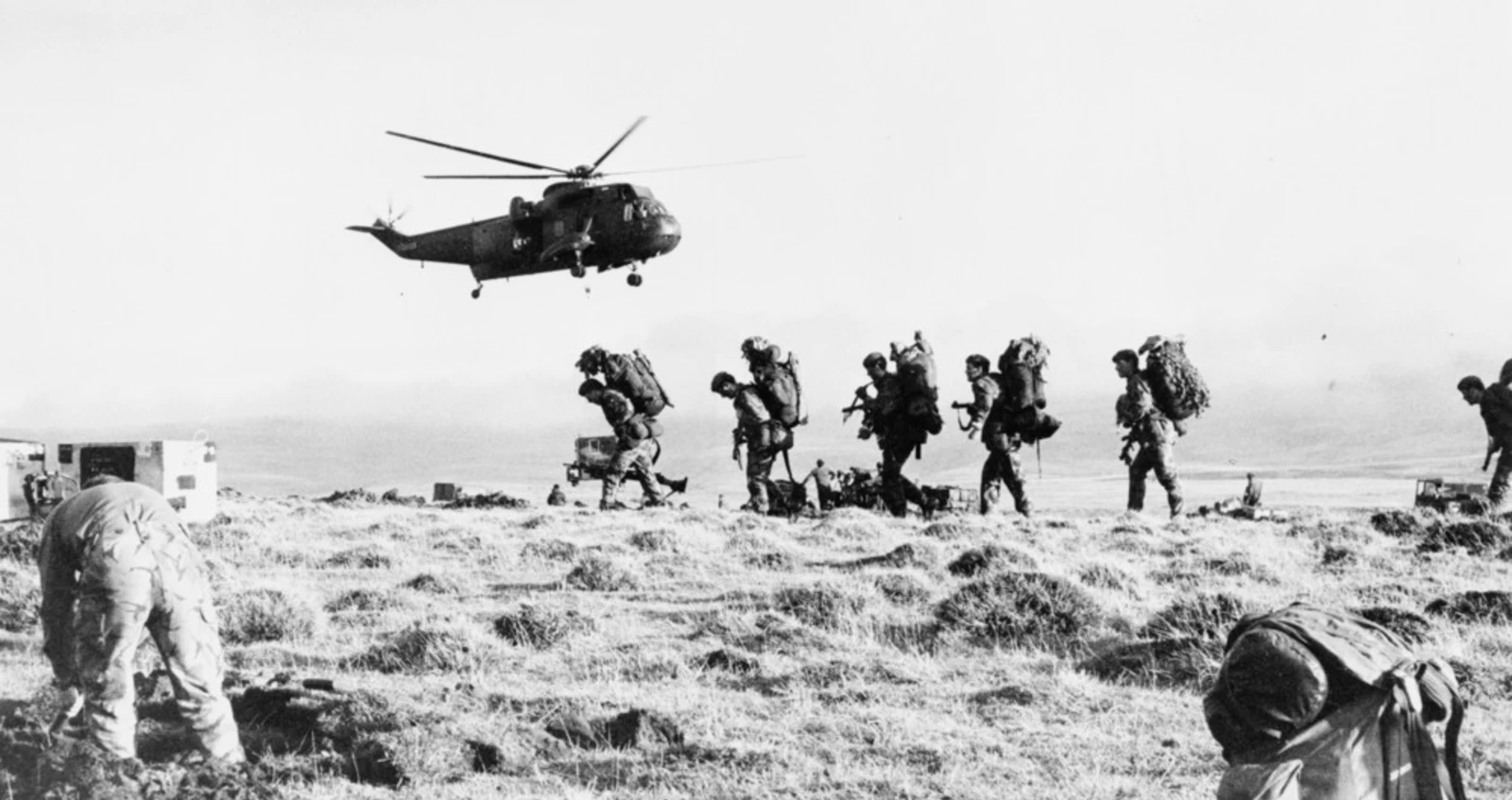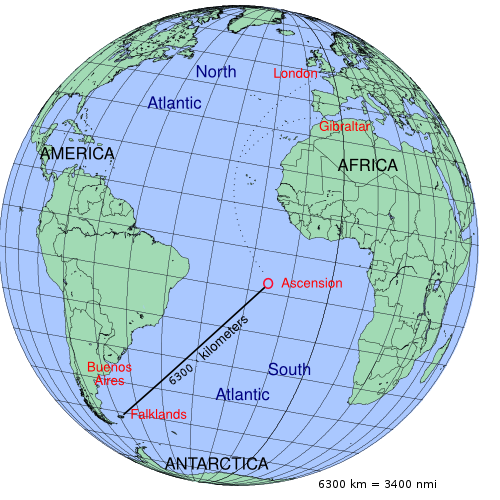- Joined
- Aug 25, 2021
- Messages
- 7,066
- Reaction score
- 16,438

(1) When was the Falklands War? (three marks available: one for the year, and one each for the months in which it began and ended)
(2) Where are the Falklands?
(3) Which countries participated? (two marks)
(4) Who were their leaders? (two marks)
(5) Which shocking and controversial event marked the beginning of large-scale combat, and made deescalation unlikely?
(6) Which famous aircraft provided air cover for the defenders (the side which was attacked at the start of the war)?
(7) Which form of attack posed the greatest threat for the defenders, causing the war to hang in the balance for a while?
(8) Were there any top-tier medals awarded to the defenders during the war?
(9) To the nearest five hundred, how many people were killed?
(10) What was the biggest land battle of the war?
(11) Who won the war?
(1) 2nd April - 14th June 1982
(2) About 300 miles east of southern Argentina (If you said reasonably close give yourself a mark.)
(3) Argentina and the UK
(4) General Galtieri (full name: Leopoldo Fortunato Galtieri Castelli), and Margaret (Hilda) Thatcher
(5) The sinking of the General Belgrano. In a legally questionable move, the UK had declared an exclusion zone around the Falklands, in which any ship (or aircraft) of military value there without permission from the UK was liable to attack without warning. The Falklands War was never declared by either side. Later the UK informed Argentina that the exclusion zone was not a limit for military action. The British nuclear hunter-killer submarine Conqueror spotted the General Belgrano, an Argentine light cruiser which was originally an American WW2 ship, outside the exclusion zone on the 2nd of May, and sank it, killing 323 men. The General Belgrano remains the only ship to be sunk by a nuclear submarine in combat.
(6) The Harrier. Both the sea and (normally) land-based versions were used.
(7) Argentine aircraft attacking British ships with bombs and missiles. There was little doubt that if all or most of the British soldiers and equipment could be landed, they would retake the islands, but if enough ships could be damaged or sunk before landing them, the invasion would have to be aborted, or fail. The UK only had two, fairly small aircraft carriers available (Hermes and Invincible), plus a hastily-converted merchant ship, the Atlantic Conveyor, which Harriers could operate from to a limited extent. As things played out the Atlantic Conveyor was basically only used to transport Harriers, and they only operated from the carriers. It was also sunk. Between them the ships carried about 35 Harriers, not all of which were specialised for air-to-air combat, and this was well short of what would have been needed for full air cover. Of course aircraft could be deterred or shot down with surface-to-air weapons, but it was less effective, and this Argentine strategy was almost successful.
(8) Sergeant Ian John McKay, who was at Bloody Sunday, and Lieutent Colonel Herbert Jones, both in the Parachute Regiment, were killed and posthumously awarded Victoria Crosses.
(9) 649 Argentine + 255 British + 3 civilians = 907. Maybe someone will say the Gurkhas weren't British.
(10) The Battle of Goose Green (~1,200 Argentine vs ~700 British, ~50 vs 18 killed)
(11) The UK
(2) About 300 miles east of southern Argentina (If you said reasonably close give yourself a mark.)
(3) Argentina and the UK
(4) General Galtieri (full name: Leopoldo Fortunato Galtieri Castelli), and Margaret (Hilda) Thatcher
(5) The sinking of the General Belgrano. In a legally questionable move, the UK had declared an exclusion zone around the Falklands, in which any ship (or aircraft) of military value there without permission from the UK was liable to attack without warning. The Falklands War was never declared by either side. Later the UK informed Argentina that the exclusion zone was not a limit for military action. The British nuclear hunter-killer submarine Conqueror spotted the General Belgrano, an Argentine light cruiser which was originally an American WW2 ship, outside the exclusion zone on the 2nd of May, and sank it, killing 323 men. The General Belgrano remains the only ship to be sunk by a nuclear submarine in combat.
(6) The Harrier. Both the sea and (normally) land-based versions were used.
(7) Argentine aircraft attacking British ships with bombs and missiles. There was little doubt that if all or most of the British soldiers and equipment could be landed, they would retake the islands, but if enough ships could be damaged or sunk before landing them, the invasion would have to be aborted, or fail. The UK only had two, fairly small aircraft carriers available (Hermes and Invincible), plus a hastily-converted merchant ship, the Atlantic Conveyor, which Harriers could operate from to a limited extent. As things played out the Atlantic Conveyor was basically only used to transport Harriers, and they only operated from the carriers. It was also sunk. Between them the ships carried about 35 Harriers, not all of which were specialised for air-to-air combat, and this was well short of what would have been needed for full air cover. Of course aircraft could be deterred or shot down with surface-to-air weapons, but it was less effective, and this Argentine strategy was almost successful.
(8) Sergeant Ian John McKay, who was at Bloody Sunday, and Lieutent Colonel Herbert Jones, both in the Parachute Regiment, were killed and posthumously awarded Victoria Crosses.
(9) 649 Argentine + 255 British + 3 civilians = 907. Maybe someone will say the Gurkhas weren't British.
(10) The Battle of Goose Green (~1,200 Argentine vs ~700 British, ~50 vs 18 killed)
(11) The UK
This war is not very famous so the pass mark is only 8/15! How did you do?
Last edited:






